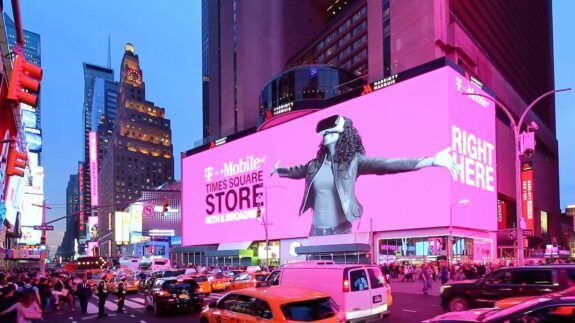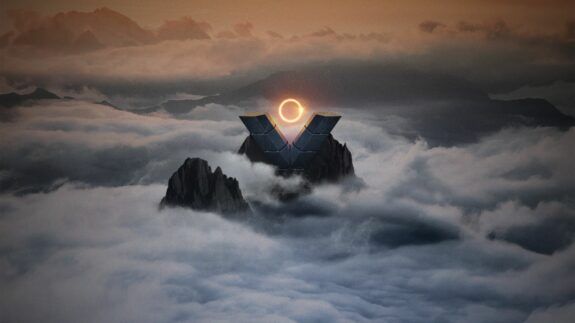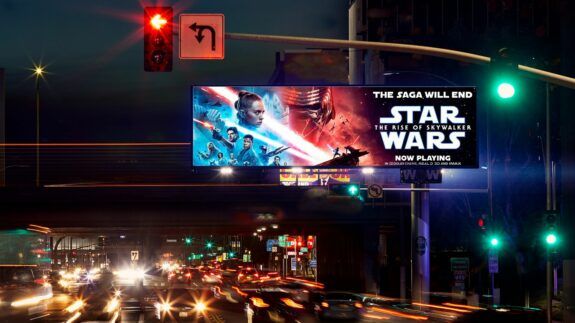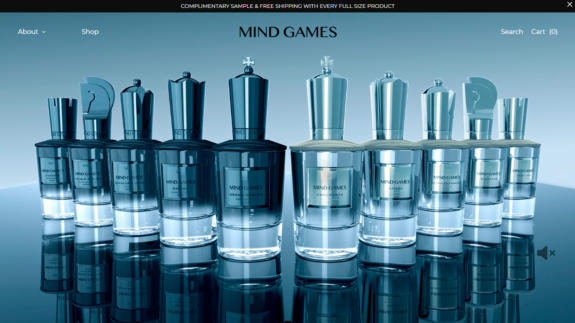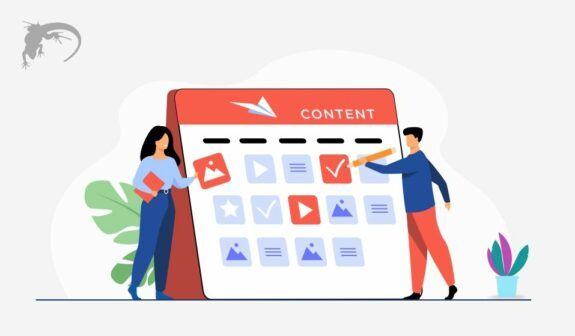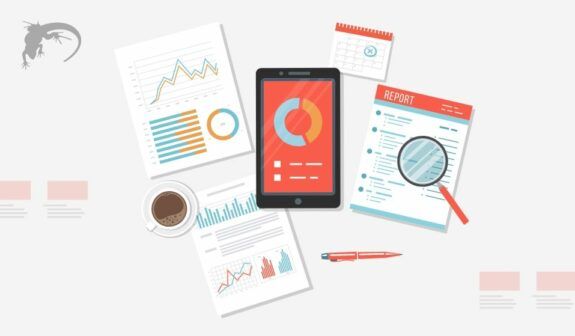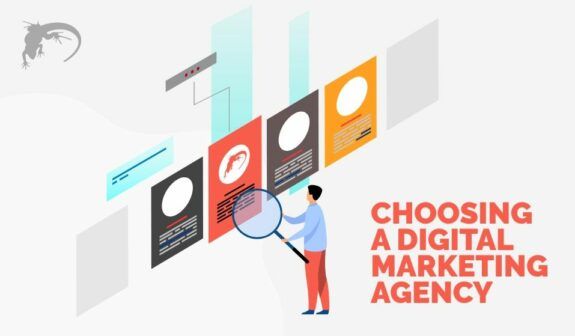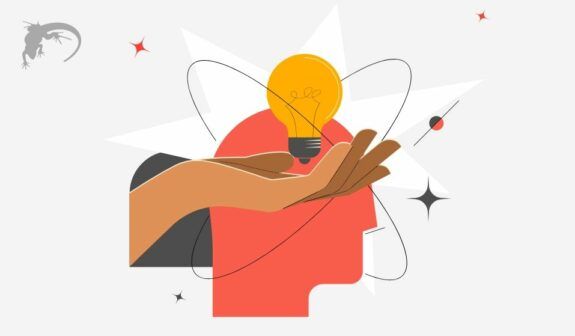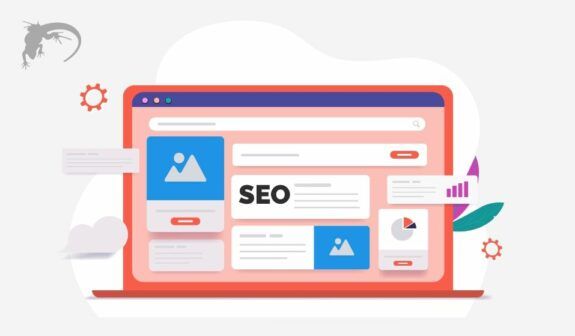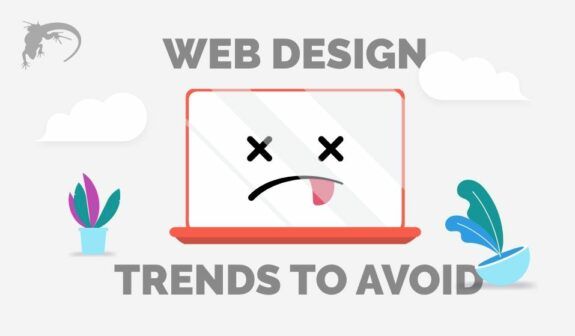The Best Web Design Companies [Top 10]
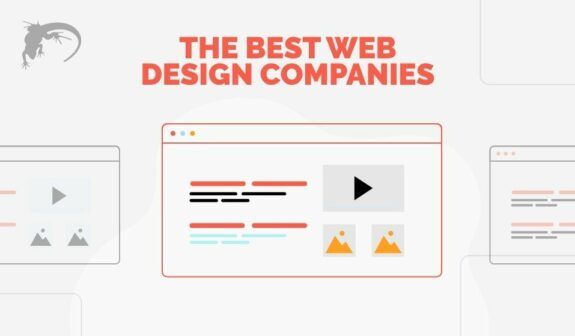
Is your website in need of a facelift?
Do you have a brand new company, but need a professional website?
Are you losing customers because they can’t find your site?
Want to rank in the ‘local pack’ on the search engine results, but don’t know how?
If any of those questions ring true, your business may benefit from talking with the best web design companies to find out how they can make a difference.
Table of contents
- Who Is This Guide For?
- What Is a Web Design Company?
- What Are the Different Types of Web Design Companies?
- What Do Full-Service or Full-Stack Website Design Agencies Do?
- How Much Does a Web Design Company Cost?
- 5 Reasons to Hire a Web Design Company
- Top Signs That You Need to Hire a Web Design Agency
- How To Choose the Best Website Design Company
- How Long Will My Website Take to Create?
- 10 Questions to Ask Web Design Companies Before Hiring One
- Web Design RFP: What to Include & Why It’s Important
- What Makes a Web Designer Great?
- What Services Does a Professional Web Design Company Offer?
- Web Design Agency Process
- What Are the Benefits of Responsive Web Design?
- What Are the Best Practices for Building Responsive Web Designs?
- Get To Know Your Web Development Team Better
- Top 10 Web Design Companies
- Takeaways On Selecting the Best Web Design Companies
Who Is This Guide For?
Whether you are an owner/principal, the head of marketing, a trusted associate, or a sole proprietor, if you have been tasked with improving your company’s website, you want the best solutions possible and, in the end, we give you our top 10 web design companies to set you on the right path.
But first, this guide will walk you through the search for the best web design agency for your business and help you understand what to expect. From User Experience (UX) to branding, to search engine optimization (SEO), we help you become proficient in what a web design agency does and how you can maximize your results by understanding the process.
So, let’s get started!
What Is a Web Design Company?
A web design company or agency is typically an experienced marketing group that brings together your company’s brand, identity, and products or services, to create a website that reflects your company values and offerings while ensuring a user-friendly experience that leads to sales.
Successful website design and development provides the elements of a sales funnel graphically depicted in a way that is engaging and intriguing to the user/visitor. Using an experienced web design company ensures your site is one that exceeds expectations, and perhaps, even wins awards.
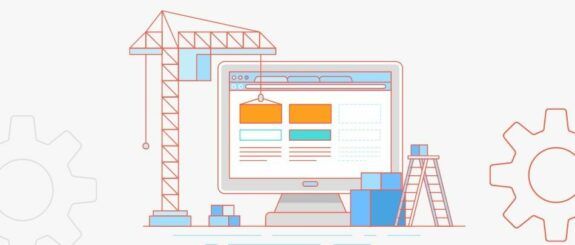
What Are the Different Types of Web Design Companies?
Like many industries, there are multiple types of web design companies available with different levels of expertise and specificity. Here are the main types of companies you can expect to encounter:
- Design and Build — Also referred to as Full-Service, these companies provide the whole project from designing to coding, building, and development to SEO, and even work with companies on their brand and their ongoing marketing strategies.
- Design-Only Firms — These firms are design and marketing oriented and usually work with a preferred group of development firms to finish their vision. They develop the design and have a thorough understanding of UX/UI, but then need a developer to make it work through written code expertise.
- Development-Only Firms — These are the ‘tech’ people, the coders, the developers that make a site work. Some work from scratch but most use open-source website creation platform/hosting sites, like WordPress and Magento. These firms work with design companies to implement their plans and ideas.
- Content Strategy Firms — These companies are focused primarily on developing content for a site, i.e., page content, blogs, white papers, case studies, etc., and a strategy to disseminate that content.
- Search Engine Optimization — SEO firms are expert at getting a site ranked on the Search Engine Results Pages (SERPs). Through the use of sophisticated on-page and off-page techniques, SEO firms can take a site from obscurity to the front page of Google SERPs in 6 to 9 months.
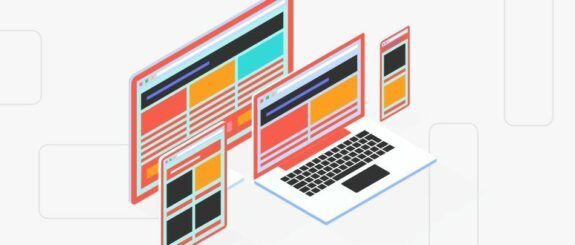
What Do Full-Service or Full-Stack Website Design Agencies Do?
For purposes of this guide, we want to focus on full-service website design agencies since, as a business owner or principal, you don’t want to have to shop around or piece-meal a website.
With a top website design agency, you work with a multi-disciplinary team for the following:
- Strategy and brand development
- Site plan development
- Design, visual elements, and functionality
- Content creation, hero headings, and Calls to Action
- SEO and keyword research
- Development of a fully functional site
- QA to ensure a pristine, error-free site
- Additional services such as on-going marketing, social media ads, content strategy and creation, PPC advertising, etc.
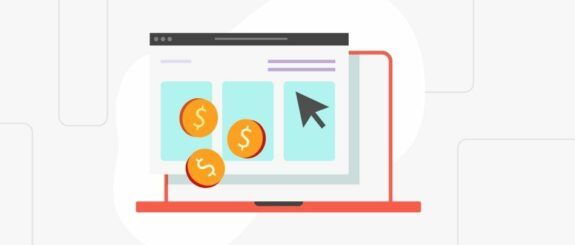
How Much Does a Web Design Company Cost?
A web design company will typically offer one or more ways to pay for a project. It could be anything from an hourly fee to a fixed, not-to-exceed rate. Here are some of the payment options you may encounter.
An Hourly Fee
Like the name, this type of fee arrangement is based on the hours used to design and develop your website.
A Fee Per Project
Some web design companies prefer to work on a single fee per project. Think of this like a buffet where you can pick and choose elements of the whole, i.e., say you want to write your own content – you can omit that component.
A Results-Based Fee
Results-based or outcome-based pricing is a bit trickier and involves ‘perceived value’ rather than costs.
A Flat Fee
By agreeing to a flat fee arrangement, you take the guesswork out of your total costs. The flat fee is a not-to-exceed number where the web design agency agrees to complete the total job for a set price usually with a predetermined number of revisions.
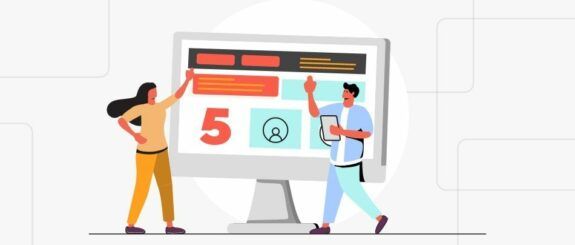
5 Reasons to Hire a Web Design Company
So why hire a full-service web design company instead of a local contractor or a ‘friend of a friend’?
Reason #1: Better First Impression
When your customers go to your site, you want the best impression possible. Your website is a critical component of business today and it represents your company and brand – don’t skimp on using the best.
Reason #2: Increased Credibility
With a professionally designed and developed website, your business has increased credibility with new and potential customers, vendors, and competitors.
Reason #3: Enhanced Mobile Experience
In the US in 2022, over 280 million unique mobile users were online. It is crucial to work with a company that understands the importance of mobile functionality and builds websites that work in a mobile setting.
Reason #4: Improved Search Engine Rankings
Full-service web design companies understand SEO and build sites that are SEO optimized for both on-page and off-page.
Reason #5: Outperforming Competition
If you are going to create a new website, why not build it bigger and better than your competition.
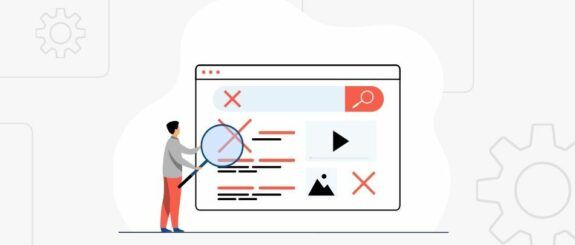
Top Signs That You Need to Hire a Web Design Agency
Here are some of the top reasons to consider using a full-service web design agency:
- You need an online presence
- Your website is old and dated
- Your website is weighed down by broken links or poor, antiquated design
- You need SEO to improve visibility
- Your website is not mobile responsive
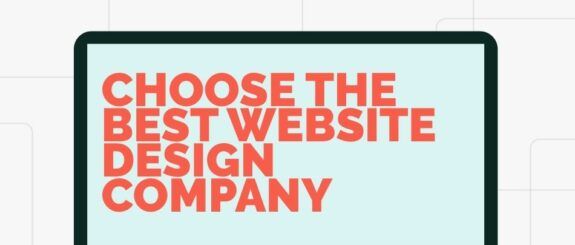
How To Choose the Best Website Design Company
How do you choose the best web design company for the type of website you need? Use this proven formula:
Step #1: Determine the Type of Website You Need
There are different types of websites that perform different tasks, i.e., e-commerce website, business website, event website, blog or post based website, portfolio website, and membership website. Understand your needs for now and the future.
Step #2: Create A Budget and Understand Pricing
It’s important to create a budget once you know the types of pricing you many encounter. Like any business plan, there needs to be a budget or guide based on how extensive the work will be – this can best be answered in an initial discovery call with a web design agency.
Step #3: Check Out a Web Design Company’s Portfolio & Case Studies
During the interview process, it will be important to review the agency’s work, including their portfolio of sites and their case studies.
Step #4: Understand How a Web Design Agency Formulates Processes and Ensures Results
This can best be accomplished with a Request for Proposal (RFP) where you ask for these specific answers. Then you can compare specifics side-by-side with all agencies who responded.
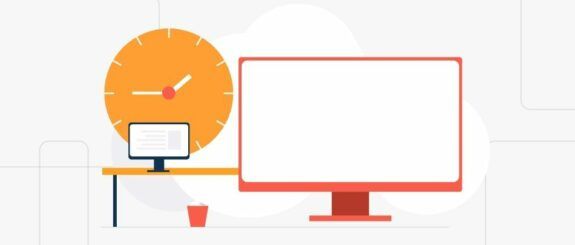
How Long Will My Website Take to Create?
According to HubSpot, professional website design and development can take anywhere from five to six months. However, there are a lot of variables that go into that timeframe, such as the size of the site, how many pages, complexity of the design and interactivity, and depth of SEO to name a few.
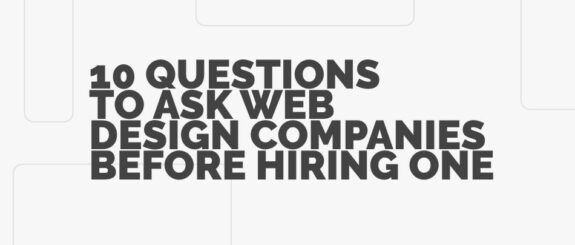
10 Questions to Ask Web Design Companies Before Hiring One
Here are ten great questions to ask potential web design agencies. Be sure to get thorough answers to each question and compare between your candidates.
- Who Will Be Working on the Project and What Is Their Experience?
- What Web Design, Development or Additional Services Do You Offer?
- How Do You Stay In-The-Know About the Latest Trends?
- Can You Share Some Successful Case Studies and Portfolio Items? Why Were They Successful?
- Do You Have Any Experience in Our Industry, Market or Solving a Similar Business Problem?
- What Is the Organizational Process of a Website Design Project?
- Do You Incorporate SEO Optimization in Website Projects? Do You Have an In-House Expert?
- How Often Will You Measure Results and What Metrics Will You Use?
- How Much Do Your Services Cost and Should We Expect Any Additional Fees?
- Do You Offer Long-Term Support, Maintenance, or Hosting After the Site Goes Live?
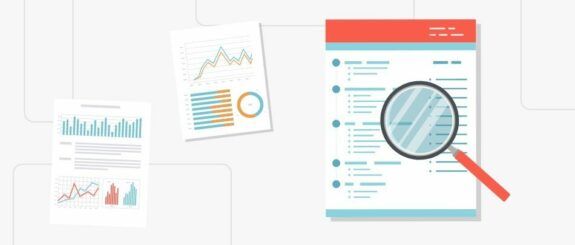
Web Design RFP: What to Include & Why It’s Important
RFPs are a great way to approach a major project and capital outlay like a website design. It allows you to get specific information from interested web design companies and provides a foundation for a side-by-side comparison of all the pricing, facts, and details. It also provides a ‘jumping off point’ for interviews and conversations with web design company principals as well as your own stakeholders. We recommend you include these key sections:
- Company Background — Give your company history and background as an introduction to the project. This allows proposing agencies the opportunity to learn about your organization and future goals.
Also, ask for their company background to be included as part of their response. That way you can learn how long they have been in business, their size, and capabilities, and how they have evolved with technology. - Project Overview — What do you see as the overall goals and strategies of the project, as well as the key performance indicators you’d like to accomplish?
- Target Audience — Who are you trying to attract to your website? Beyond new customers, it could be investors, existing customers, vendors, stakeholders, and industry players.
- Project Scope, New Functionalities and Deliverables — Clearly line out your overall project scope and deliverables, plus any new functionalities you’d like to incorporate into the site, i.e., better e-commerce capabilities, cool new imagery, slick navigation options.
- Website Examples — Sometimes the best way to explain what you have in mind is by providing examples of other websites that you’ve seen and liked. Ask the respondents to provide their portfolio of completed successful websites as a point of comparison. You will receive examples of the best of their work to view and choose from.
- Budget — Here’s where you can define the pricing structure that best suits your business.
- Timeline and Deadline — Ask the respondents to define a timeline and give you a start and end date.
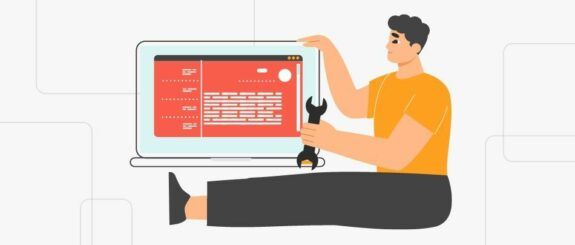
What Makes a Web Designer Great?
If you are unfamiliar working with web design agencies, you may look for these attributes in the leadership and design/development teams.
- Strong Background — Do they know their business? What is their background, and does it include formal education as well as long-term experience? Are they siloed in their discipline, or do they have a broad understanding of the entire process?
- Communicative — A great web designer is also a great communicator — from start to finish, they will include you in the design phase and let you know status updates.
- Takes Constructive Criticism — Great web designers don’t personalize criticism. They understand a client’s desire to have the best site possible and work with the client to achieve it.
- Accessible — As the client, you want to be able to reach your designers and developers when it’s most suitable for you. A top web design agency will ensure a project that’s professionally managed and organized, has technological resources, and ensures easy accessibility.
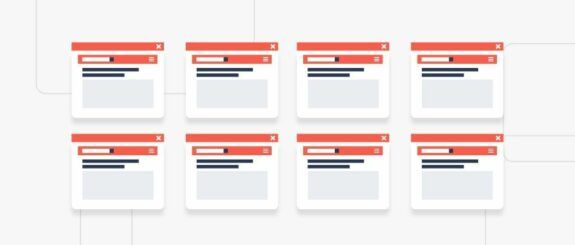
What Services Does a Professional Web Design Company Offer?
When working with the best web design agencies, you can expect a full-stack process that’s thorough and complete. Let’s start with the actual design and build process and then round out with some ancillary services.
Web Design Agency Process
- Discovery — The discovery phase will include a comprehensive look at your company’s current website and branding kickoff, as well as these things:
- Vision for the new site
- Company brand and logo
- Overall company culture
- Target audience
- Unique selling propositions
- Immediate touchstone – what do you want to say to a visitor in the first seven seconds?
- Key language, i.e., innovative, futuristic, technology-forward
- Competition
- Lead conversion tactics
- Success metrics
- Competitor Research — Next comes researching your competitors in terms of their site design, organic visitor count, and keywords/SEO success. It’s always good to reach higher than your best competitor in terms of look and feel of a website.
- Wireframing and UI/UX Design — To build a solid foundation, website design is first typically done through a site plan and wireframe that allows you to see the design and functionality before the developers begin building the site. Once flow and interpretation are agreed upon, the wireframe moves into the design phase.
- Custom Website Design, Visual Design Concept, and Production — Next, the wireframe is fully-fleshed out in terms of images, functionality, and overall feel. The sky is the limit (along with your budget, of course). Custom design allows you to optimize color, visuals, and messaging to create a site that captures your company’s personality and culture.
Your designer will construct the design concept and UX/UI to ensure a strong user experience. They will suggest interesting and creative ways to guide the user through the site to the final sale. In the end, you will have a strong prototype of your ultimate website.
- Content and Copywriting — Now it’s time to add content. You will work with an experienced copywriter to create the message you want to present within the boundaries of the design. The copy is enhanced using industry-forward SEO techniques.
- Web Development — The finished design is then sent to the web development team who creates the website and all the functionality involved. Once complete, you and the team perform extensive QA to ensure the site is working at an optimal level.
In addition to the design and development process, there are these three considerations to remember:
- SEO Campaigns — Campaigns can be created to refresh, update, or initiate a website’s search engine rankings. They can include keyword research, creating backlinks, working to improve site speed and responsiveness (more about that below), and page-specific title tags and meta descriptions improvements.
- Conversion Design — Designing a conversion focused sales funnel throughout a website may work initially but can change over time. You may add additional products or lines of business that require incorporation changing the initial path to something new and different. Working with a web design team knowledgeable about conversion design can help your website’s overall effectiveness.
- Content Management Systems — Changes to your content management system or website application (e.g., WordPress, Magento, Shopify) is best done by hands-on experts, such as the development team of a web design agency. While there are minor changes and updates like posting blogs, etc., that can be handled in-house, changing menus, adding pages, and altering the flow of the navigation can cause problems best avoided.
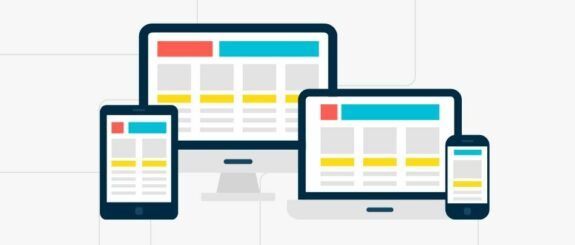
What Are the Benefits of Responsive Web Design?
Maybe you’ve heard of ‘responsive web design’ or ‘mobile responsiveness’ when researching website development. Basically, it references design and layout that adapts to the screen of the device being used. So, whether it’s on a laptop, a tablet, or a smartphone, the site performs exactly as intended with no overlapping visuals or broken functions.
Why is this important? Because it provides the following:
- Targets Mobile Audiences — As we have detailed above, mobile audiences make up a large contingent of users on the internet (above 60%). If your site isn’t mobile responsive, you will lose access to this huge group of potential users/customers.
- Faster Web Pages — Being responsive means ensuring your website is working at top speed and that you don’t have any hinderances causing a slow down when pages render.
- Social Media Reach — Your site has the ability to reach vastly more social media users when they can access your site easily and on the go.
- Reduced Maintenance Cost — By building a responsive website from the beginning, you greatly reduce your future maintenance costs trying to fix problems or speed up the site even more as technology or Google algorithms dictate.
- Avoiding Duplication — By avoiding duplication of pages and content, you maintain responsiveness, while also improving SERPs in Google and other search engines.
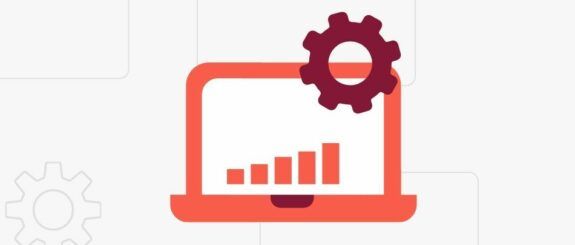
What Are the Best Practices for Building Responsive Web Designs?
Remember, designing for mobile phones means being aware of screen orientation, total real estate, and visual functionality. You want to work with a top web design agency that thoroughly understands responsiveness and the different things that affect it. For example:
- Design for Different Devices — Mobile is not just a different platform for the same site. It requires design that works in the smaller, more compact environment. For mobile, that may mean designing for thumbs.
As an example: desktop navigation is usually at the top, but for mobile, having it below makes more sense since thumbs don’t easily reach the top of the screen. Also, swipeable menus and CTAs make sense for mobile users who are already preconditioned to use that technology.
- Prioritize Content — Content needs to be prioritized into a clear hierarchy that allows wide, multi-column content to squeeze effortlessly onto a mobile screen with a single column.
- Quality vs. Speed — How do you decide which takes priority? 42% of users will leave a site if it takes longer than three seconds to load and a one second delay in response time can mean a seven percent loss in conversion rates.
On the flip side, if you don’t have quality content that is easily accessible on a mobile screen, you may lose those hard-won visitors. The answer is simple – you need both!
- Navigation — It’s more important than ever to put relevant information at the top of your content, i.e., CTAs, telephone numbers, contact info. Mobile users are less likely to scroll to the bottom of a content piece for that information.
- Typography — Pixels are now different on various devices, so designers and developers must work together to achieve the crispest graphics based on font size and style.
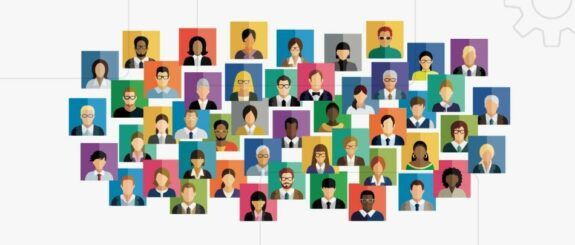
Get To Know Your Web Development Team Better
Working with a full-service web design company means you will be able to draw on a variety of professionals that make up your design team, including:
- Requirement Analyst — At your initial meeting, you will be working with a requirement analyst who will evaluate the overall project and needs to assign the best team of designers and developers for the new site. This person may also be your project manager.
- Project Manager — Charged with the organization, budgeting, scheduling, and execution of websites from start to finish, the project manager is a key player in the entire project and coordinates the efforts from design, development, through QA.
- UI/UX Designer — The creative charged with designing your website for functionality, user experience, and overall esthetics using the latest in UI/UX protocols. The look, feel, and voice of your new website starts here.
- Web Developer / Programmer — The code and technology expert who interprets your final design into a functioning website complete with all the bells and whistles prescribed. This is the person that ensures your new site is fully responsive and capable of meeting/exceeding the stringent guidelines set by Google’s search algorithms for speed and other key vitals.
- QA Engineer — Once everything is complete, the QA Engineer is responsible for ‘test driving’ the site and ensuring everything is working, including all links and CTAs, all ecommerce functions, and any money collection applications.
- Marketing Strategy — With access to your site and content strategy, the marketing strategist plans and implements the overall launch which can include social media and email support.
- Content Writer — The content writer works closely with you to develop content for your site’s pages and posts using optimized keywords and SEO best practices to ensure maximum exposure. Like the visual texture provided through design, content creation can elucidate company culture and values as well as sales and lead generation through language.
- SEO Expert — Building a website is great, but you want to get found too! The SEO expert is the person charged with the on-page and off-page aspects of SEO that ensure your site is fully optimized for the best possible SERP results.
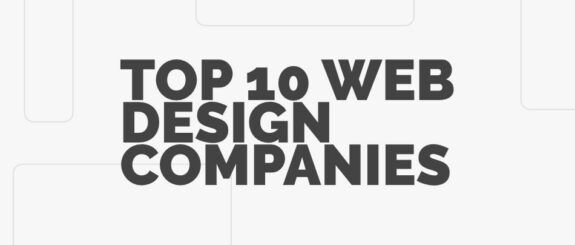
Top 10 Web Design Companies
So, now that we have guided you through the process of what to look for and what you will need, here are the top 10 web design companies in the USA as reported by WebDesignRankings.com.
- Lounge Lizard – Best of Breed Since 1998 — New York, NY, Washington, DC, and Nashville, TN
- WebFX — Harrisburg, PA
- Intechnic — Chicago, IL
- Company 119 — Chardon, OH
- The Creative Momentum — Alpharetta, GA
- Higher Visibility — Memphis, TN
- Mightybytes — Chicago, IL
- Blue Fountain Media — New York, NY and Chicago, IL
- SmartSites Digital Marketing Agency — Jersey City, NJ
- AMR Softec — Located in Mohali, Punjab, India with offices in the US
Takeaways On Selecting the Best Web Design Companies
While there are many web design companies to choose from, your business requires you to select an industry-leading company that has the experience, expertise, and creative horsepower to make your new website shine.
From initial onboarding through the final QA assessment, a full-service web design agency will use best practices to design and build the premier representation for your business and brand. While we have shared some of the key questions to ask through your RFP process, don’t forget to investigate their case studies and portfolios, online reviews, and awards or certifications.
In this highly competitive field, your due diligence will be rewarded with a site that is effective for years to come.
Be sure to take a look at our work while you’re here. We would love to propose web design services for your company – just contact us.

